|
Why Is This Age Worse . . . ?
Anna Akhmatova Why is this age worse than earlier ages? In a stupor of grief and dread have we not fingered the foulest wounds and left them unhealed by our hands? In the west the falling light still glows, and the clustered housetops glitter in the sun, but here Death is already chalking the doors with crosses, and calling the ravens, and the ravens are flying in. Translated by Stanley Kunitz (with Max Hayward) Anna Akhmatova wrote like an oracle reaching forward in time to speak to us living in our modern-day chaos. We are living in what I call the, No one is going to save us, period. It is not as fear-based as it sounds, but simply an acceptance that the government we once trusted is gone. From blaming the average person for wanting too much for herself, to failed foreign policies, to a bribable FBI . . . we join civilizations that had a good run before they reached a tipping point and fell into decline. My son and I have talked at-length about this inevitability for the past twenty years. We sensed the early decline, early revelations about the Iraq war machine made us mistrust, and all of it pointed to this critical moment in history. Our collective tipping point. Am I surprised? Saddened at the speed of our unraveling, but not surprised. There is no longer room for denial. It would be comforting if life were a rectangle of Instagram beauty, and some days scrolling unreality is exactly what I need to keep my mind from spinning into negativity. Most days it takes digging in the dirt, shoveling manure or ripping out Serrano chili roots. Something physical that suspends my worries, an exhaustion that leaves me without the need to pretend. I am good at pretending. I leaned this skill in church and it is still with me. I recognize it in my writing, the desire for life to be anything but random, a kind of sick perfectionism that creeps into my words. Pretending does not sustain or heal us; it only delays the inevitable. So what does sustain us? Where do we go to feel safe, at peace, at least less afraid for the future? My granddaughter was surprised when I told her Yes, I am a still a Christian. I saw the struggle on her face as she tried working out what she believed about Christians and my obvious acceptance of untraditional behaviors. It didn't fit. It does fit. Having left one belief system to finally embrace another, and then to step quietly away from that world, has not left me foundationless. In fact, my beliefs are sustainable, based on experience, not doctrine. This is heretical to some, but necessary for those of us who, as my godmother Theodora says, . . . need to tear it up. To excavate. To question. To refuse silencing. My foundation is helping me to step forward in a time of trepidation. I sense the purposeful divide and see the instigations, the ugly deceptions, the fear-mongering and constant propaganda for what they are: an attempt to control. What matters in a time of escalating crisis? Family of course. True friends. Even escapism has its place. For me, the ability to turn back toward God, to lean in and trust, to remember that this is all temporary is actually comforting. And in answer to my inquisitive granddaughter, I am a Christian, but I don't believe in a deity who gives us everything we want or takes away our problems; but one who gets in the sludge with us, who struggles as we struggle and who sorrows alongside us as we watch for ravens and pray they never appear. And I believe in your bright future. And in language that not only comforts but awakens. Colette aka Grandma aka Yia Yia
2 Comments
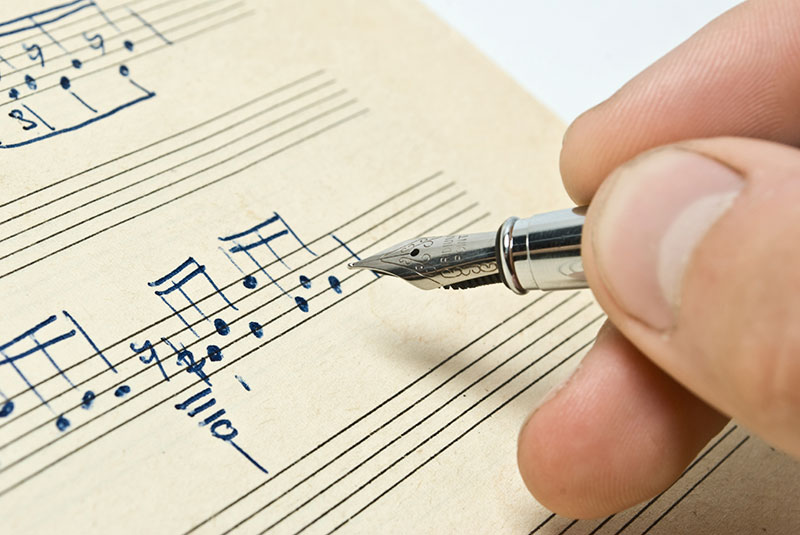 What has transpired since my last entry has altered the way we see the world, if not the universe. Some have dug deeper into their fears and shut out anything that challenges their beliefs. Others have tossed their long-held beliefs, replacing them with entirely new ideas. Some of us have stood still so long we are not sure how we fit into the larger picture. The one point of agreement may be that the ground continues to shift, leaving us unsettled and vulnerable. Writing for me has always been my safe place, where I hide when the world gets too challenging. Putting my thoughts down helps me to sort out unruly emotions. In the past two years I have become an avid journaler. If you were to read my journals you'd be unimpressed. Daily activities, observations, a thread of redundant thoughts pulled tight whenever I sense the world around me unraveling. A haiku. A poem. A small chapbook that keeps getting shopped around. That is my recent literary output. Looking toward another winter in Denver, I have chosen to complete a non-fiction book that is screaming for my attention. The term "unfinished symphonies" comes to mind. I have dozens of unpublished poems, a book manuscript, and this non-fiction beast that deserve better than my ennui. Which of your unfinished symphonies needs attention? What have you started and set aside because the project is too large, your confidence too small, or your life too busy to consider its importance? Your unfinished symphonies are important. They are a part of the reason you're here. They are meant to touch, comfort and embrace others. This fall please choose one of your symphonies, no matter how incomplete, how ignored, how ugly. It needs your attention. The world needs your voice. Colette September, 2021 Artist: Dee Nickerson http://www.southwoldgallery.co.uk/artists/128/dee-nickerson 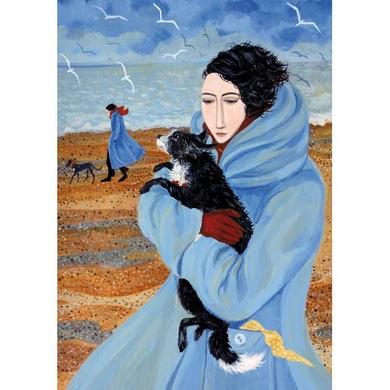 So much electronic information comes at us daily, it is possible to be distracted from the moment we wake up to the moment our head hits the pillow at night. Distraction has been at the forefront of my life for years. I have a desktop, a laptop, an iPad and an iPhone. I used a flip phone long after everyone else was watching videos and sending texts on their mobiles. I fought the good fight, but I lost. I’m as addicted as anyone to immediacy. What I sensed early on (and ignored) was that I was no longer carrying a notebook with me, and I was no longer writing poems. I had gone from being a creator to a consumer of information. My originality was co-opted by my dependency on quick news, YouTube and Masterpiece Mysteries. This distractibility isn’t anything unique to me, most of us have come up against immediate gratification in the form of electronics. As our computers become necessary to pay bills, communicate with friends, and to do business, the place where we end and they begin has become blurred. Much like a co-dependent relationship, it’s not healthy. This lack of healthy boundaries brings up a need for strong resolve. Since I was five, I've known a simple truth: If I am to be happy, I require tons of daydreaming space. Time to ponder. Time to reflect. Time to sit on a swing or under a tree and imagine. And this has been taken from me, from us. Most importantly, it has been taken from our children. This daydreaming space is exactly what I intend to take back. It is late November, not January when we are forced to look more deeply into our flaws. I choose November as my jump-start month. The month when we realize winter is really coming. November when the saddest of poems is written, when our losses feel insurmountable. November when the sky darkens too early, when we hunker down with a fleece blanket, and when even our family togetherness has a wistful sort of feel. November from here on out is not a month to give to or to give up on, but to begin again. This is my simple November plan to reinvent myself outside the world of electronics. I can’t say I’ll be 100% successful, I never am, but I am determined this time to make it stick. 1 Two hours tops online. (This does not include research or business responsibilities.) 2 One hour of prayer, meditation and/or daydreaming. 3 Creativity gets four hours. Creativity for me means walks, hikes, painting the walls, writing, and creating art. And time spent with dogs and children. Creativity to you may mean writing a book or completing an aria, dancing or identifying birds. 4 Carry a notebook, preferably a red one, wherever I go. In the past I have made detailed January instructions-to-self that I could not possibly obey. This time I have dumbed-it-down, made it simple for myself. Will you join me? We can meet up next November and compare notes on how less electronics gave us more time to daydream, to create what only we can create, and to be present to the moment with fewer distractions. 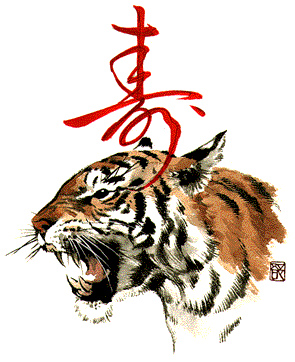 I am a sheep/goat/ram in the Chinese Zodiac. I love how a word conjures up an image, a sheep being someone who follows docilely behind. A goat is a stubborn being who eats everything in sight. I think of the massive trucks that lumber down Denver freeways, RAM emblazoned on the grill, some vehicles so high off the ground you'd need a ladder to climb inside. As an animal, they are anything but passive. It is entertaining to consider zodiac qualities, to ascribe our personalities to being a sheep or a Gemini. No matter the influence of the planets or our biologically determined dispositions, our human identities are formed early. The child is smart, cute, talented or awkward, shy, precocious. We get our clues from family, from society, and we learn instinctively to merge those given qualities with those of who we truly are. Who are we truly? This question is possible in the West, because we have the time and opportunity to mull it over. Since the 60's, people have opened the door to consciously consider who we might be, and how to live our lives in accordance with the self that lives beneath the surface. The more we dig, the more we circle back and around to that self that does not change and does not move from center. I call it the core self. It is who we are when no one is looking, when we are simply being. Although we appear to change when we are angry or infatuated or simply tired, that core self doesn't waver. That core self ought to be at the bottom of the well we dip into when we write. Anything else will give us superficial images, insincere platitudes. It is not a matter of craft, it is a matter of honesty. Editing poetry at Tiger's Eye Press, we often found that a fresh untried voice was preferable to poetry written appropriately, neatly, cleverly. That a poet learned to write what easily appealed to the masses, meant little to us. It wasn't even originality that held us, but the sense that the writer was being honest with us. That they were putting something REAL on the page, a part of themselves that made them vulnerable. As I ease away from the editing and move into my own writing, I too have to consider what works and what is real. So easy to write nine words across, twenty lines down, to give an editor the look of their journal . . . just the right amount of white space. But is that my poem? Was that even my idea? How deep did I go into the well to find it? It is a new year. The year of the dog. I feel the weight of it, the weight of saying something that matters. 18 years of editing and reading and considering the words of others. If I'd seen how this course would slow my own career down, would I have done it differently? Maybe. Maybe not, because where I am now is exactly where I want to be. Who I am at the core has never been more relevant to the writing. A poet is at his or her best when pretense is dropped, when the voice that whispers to write just another poem on the wind is quieted. Let the year of the dog be the year we write from our core selves and submit work that speaks our vulnerable human truths. Colette Who are you in the Chinese Zodiac? www.chinahighlights.com/travelguide/chinese-zodiac/dog.htm 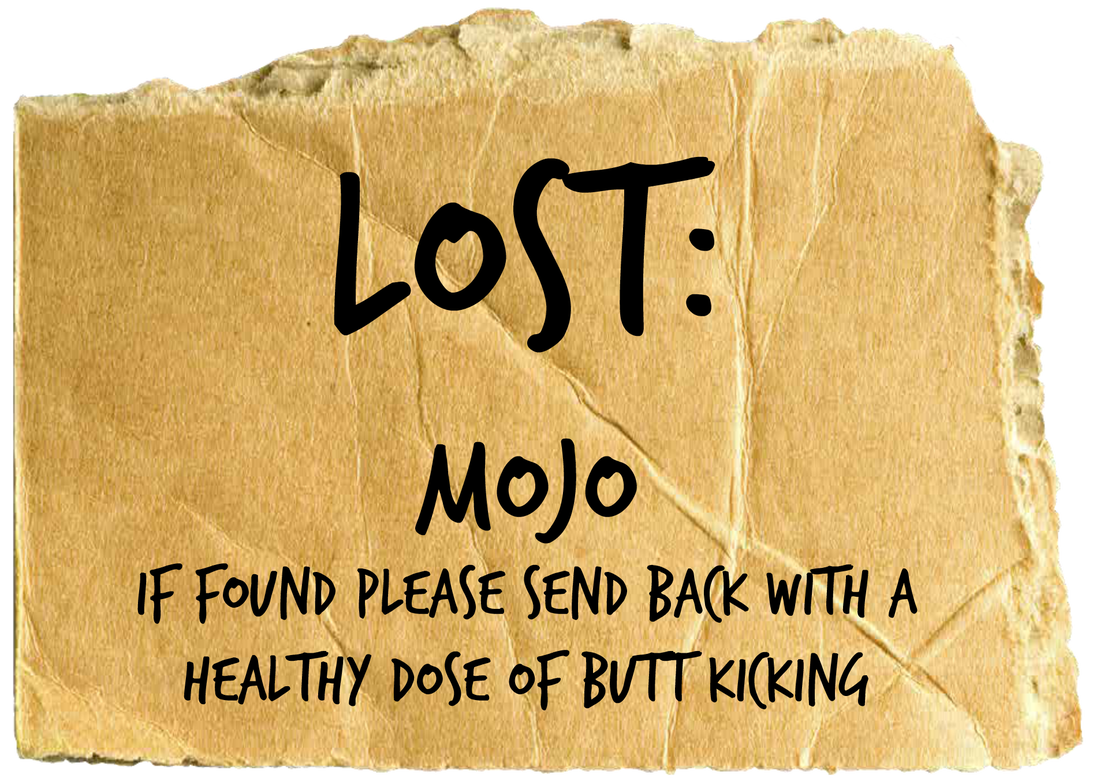 Setting new year's goals rankles me. Not because I don't need to alter my life, but because my 2018 goals look suspiciously like my 2017 goals: write more submit more finish art projects eat right walk daily B O R I N G What is different this new year is that I'm feeling an influx of positive energy driving me forward. My mojo is back. The unexpected influx of energy came after spending several months in monastic hiding mode. So many things in my life were no longer serving me. I had moved on physically, but was lagging behind emotionally and psychologically. So whenever I attempted something creative, it fell flat. I could create beautiful things for others, but not for myself. By taking a break from the frenetic activity that kept me from considering anything deeper than what I was having for dinner or what episode of Suits I was on, I was forced to have a vulnerably threatening look at the areas of my life that were suffering from neglect and filled with dross. Finally, after I’d cleared out the dross, and there was a lot of dross, I rediscovered my old love, poetry. We’d passed on the street several times, and once even had coffee together at the Starbucks on Colfax, but we had not had a good conversation in ages. Poetry blamed me for being emotionally unavailable. I blamed poetry for being fickle. After agreeing to stop the name-calling, we took up where we'd left off, albeit both of us a bit skittish. Finding the poetry still living within had nothing to do with resolutions, but more from taking time away from the chaos and frenetic movement of everyday life in a big city. It was about returning to center. And the center for me is always the writing. There was too much clutter and busyness, too much driving and shopping instead of daydreaming. I’d become an avid consumer again, something I learned in Orange and Sacramento. The art of shopping, a required course for high school graduation in California. Confession: I just bought a box of Prismacolor Verythin pencils. I am still a consumer. But I also wrote and submitted a chapbook. The latter giving me 10-fold more joy. I am adding one more goal for 2018: joy I had lost track of joy. That sweetest of feelings that we remember from childhood. Our first loving embrace. The perfect slice of pineapple. A poem read well and appreciated. joy brings people together joy infuses us with creative energy joy is the twin sister of hope, the cousin of mojo So, while I am wishing you a new year hard body and an industrial strength power washer, a hot yoga routine and a trip to Bolivia, I am more adamantly wishing you renewed mojo and more joy than you can load into your red Target basket. Colette “It is difficult
|
Archives
October 2022
AuthorMy writing often deals with the environment, my poetry filled with allusions to natural and man-made disasters. I have unlimited hope though; there is just too much wonder in this world to become a defeatist. To quote Margaret J. Wheatley, '"Hopelessness has surprised me with patience." Categories |
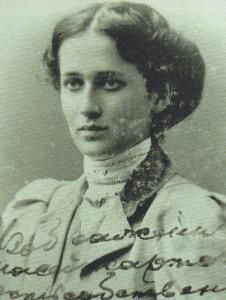
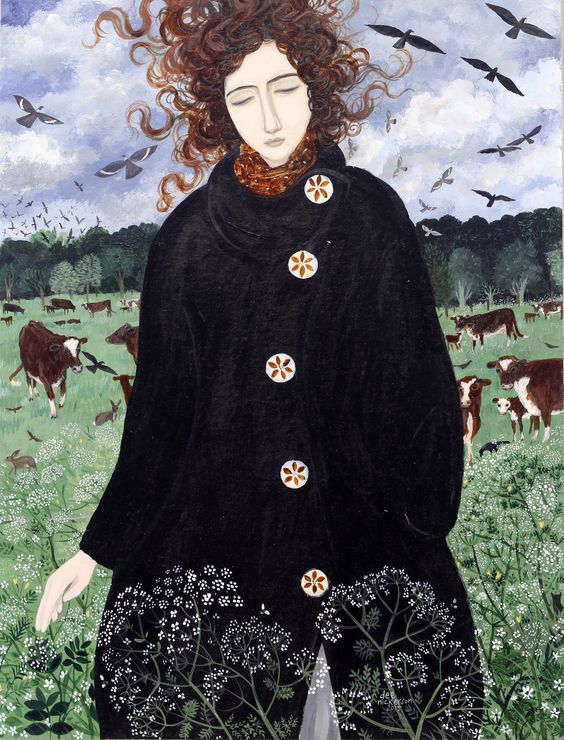
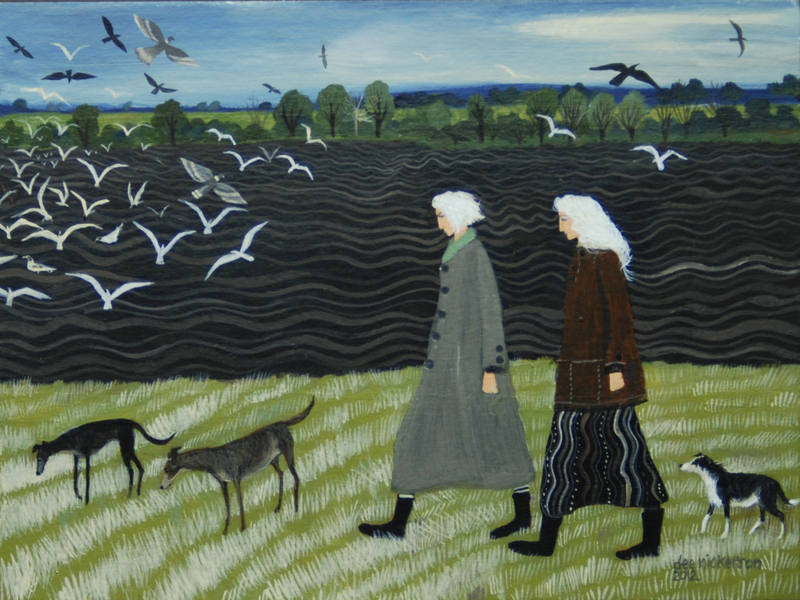
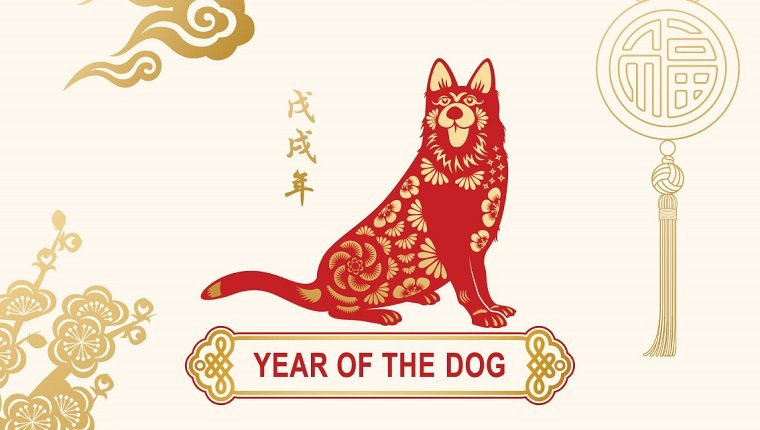
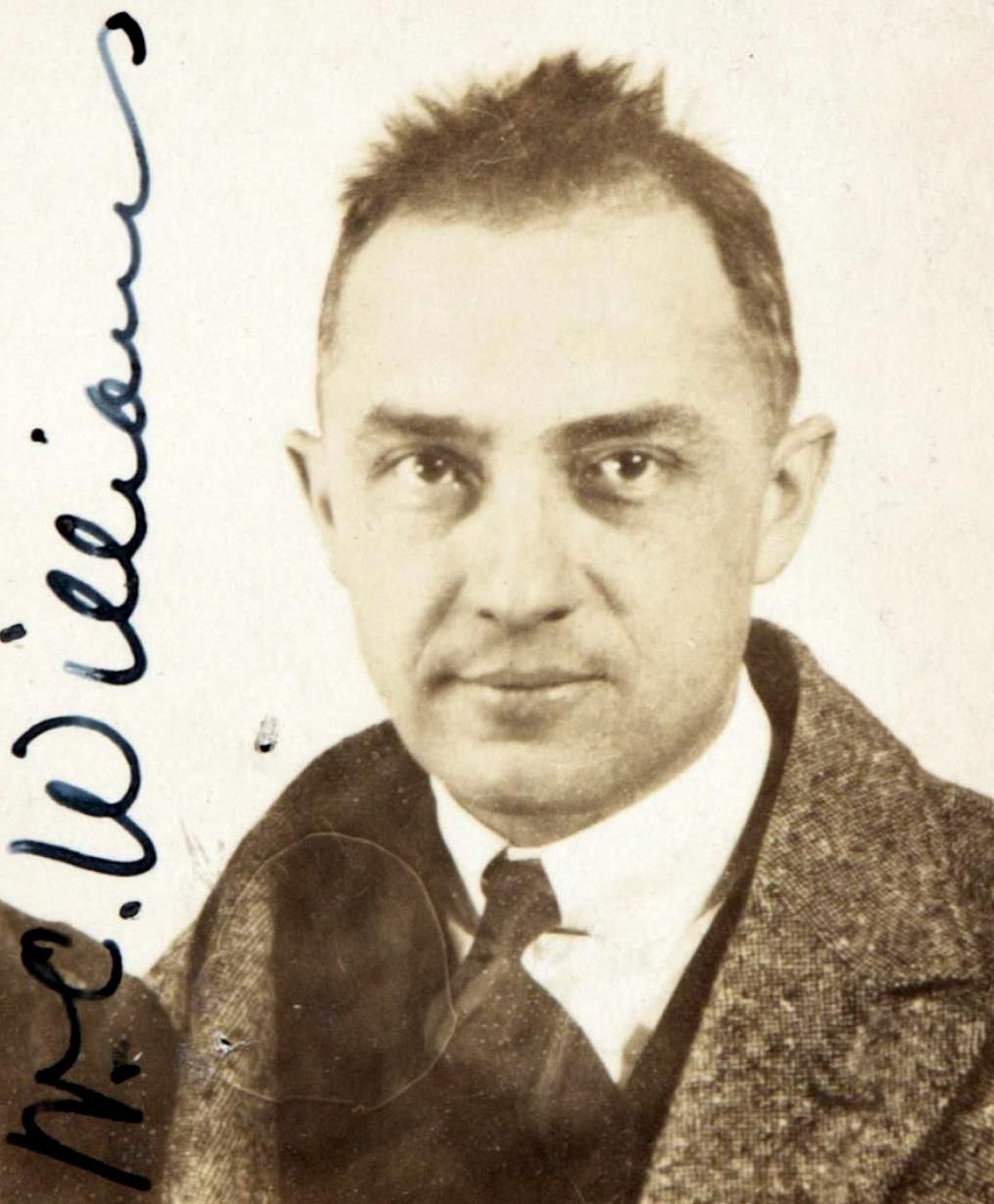
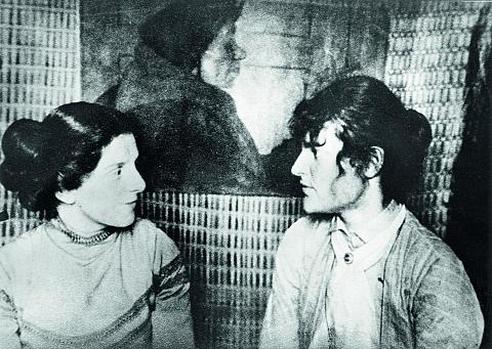
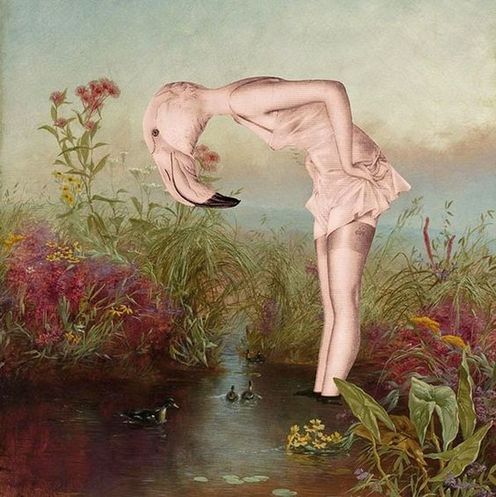
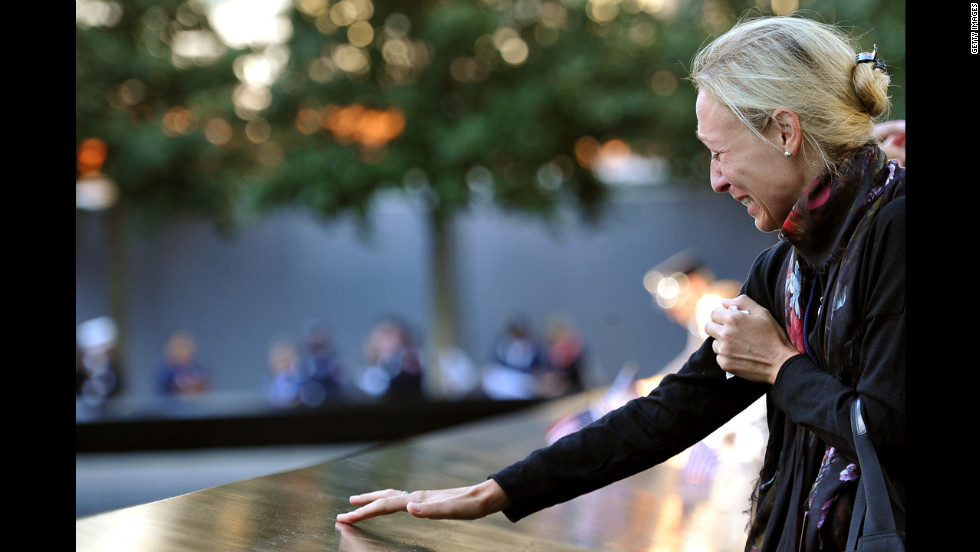
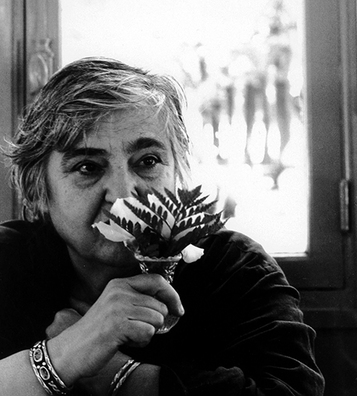
 RSS Feed
RSS Feed
